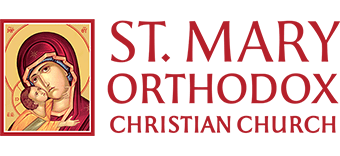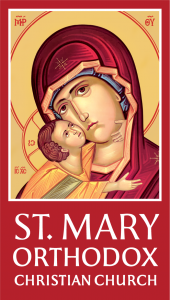~By Metropolitan Saba (Isper)
The humble person is objective and aware of his duties and rights; he knows the extent of his impact on society and realizes his position and role within it. He does not monopolize his talents and abilities but is happy to share them with others, even if their talents end up exceeding his. He rejoices in other people’s success and is thrilled by their growth and maturity. He knows neither jealousy nor envy, is thankful for everything, and flourishes on other’s progress.
As for the arrogant person, he only views things through the lens of his own ego. He is immersed in boastfulness about himself and considers no one else but himself. He is condescending towards others and wants to seize everything for himself. Jealousy kills his soul, envy exhausts him, and he is constantly troubled by those who are more distinguished than him. He is demanding, has a bad temper, and is never satisfied, no matter how much success he might achieve.
The humble person realizes how enormous the universe is. Therefore, he is always receptive to other people and ideas. Great scholars tend to be humble because their vast knowledge makes them aware that what they do not know about the universe is much more than what they know. They constantly pursue more knowledge with a sincere zeal, whereas the less learned might be arrogant, haughty, and conceited about what they know. The latter are condescending toward those who are less knowledgeable than them, yet at the same time, they are intimidated by those who are more knowledgeable than them and avoid interacting with them.
The humble person is inhabited by love and views every person as a repository of love. He does not exalt himself, because love does not know exaltation. He deals naturally and spontaneously with others, since he does not know how to lie, falsify facts, or wear masks. More precisely, he has no need to act in such a manner because he does not feel insufficient and compelled to cover up or mask his inadequacy with fake or false interactions. Thus, he is a human being with no inferiority complex. In other words, his self-confidence is within normal limits: he does not overstate his self-confidence, as this leads to arrogance and haughtiness, and he does not understate it, as this leads to cowardice and naivety.
The humble one is a balanced human being. He does not view himself based on how other people view him and, thus, does not have to act inappropriately in order to please others.
Humility is associated with self-knowledge, which is “a person’s awareness of his ability and a restless reminiscence of his slightest shortcomings” (as St. John of the Ladder says).
What has been said so far is a description that befits humanity in general. For Christians, pursuit of humility surpasses this description, because we strive to imitate our Lord, who says, “Learn from Me, for I am gentle and lowly in heart” (Matthew 11:29).
Humility might appear to be a downward descent, yet for believers it is an ascent to the highest and a closeness to the Lord and to Creation in general. Humility is deemed to be the third to the last step for those who seek perfection. In Orthodox spirituality, humility comes right before dispassion (apatheia) and love, which are the summit of the ladder of virtues.
The humble person anguishes at pridefulness and pities the arrogant, because he realizes that pride tears apart human nature while humility unites it. The haughty person seeks self-satisfaction through arrogance and cruelty towards others. He thinks that his existence depends on humiliating others, while the humble person understands that loving others is the basis of his and their existence.
The humble person knows that any judgment about others is distorted if it is tinged with pride, because it is not based on a pure and valid contemplation of reality. Conversely, humility leads to careful insight, devoid of passion, and therefore, to sound judgment.
While the arrogant person twists his view of life’s affairs to suit his selfish interests, the humble person’s approach is realistic, baptized with love. Therefore, the latter re-establishes the true understanding of the affairs of life. The arrogant person is negative, accompanied by pessimistic darkness, hopeless and helpless. Meanwhile, the humble person is positive to the end, capable of accepting a changing reality, and accompanied by optimism and ongoing progress.
Our spiritual literature has not in vain said that trees devoid of fruit are erect and rise to the heights, while trees full of fruit are always bent. As a matter of fact, the more fruit they carry, the lower they are bent.
In Latin, the word humility means “fertile ground.” The humble one is like low-lying land that receives water and absorbs it, enhancing its fertility and increasing its fruits.
Humility leads to exaltation, while vanity leads to humiliation. For the Bible says that God “brought down the haughty and exalted the humble” (Luke 1:51). Exaltation is beautiful and good, but humiliation is repellent and distasteful.
The rooster is only aware of its own pen and is content, believing itself to be the mightiest and strongest. This is what an arrogant person is like—trapped in himself, believing that he is the center of the universe. The eagle, however, flies high and sees the earth and everything on it. It notices its tininess compared to other creatures, mocking the rooster and realizing the extent of the latter’s ignorance. Eagles are like humble people: they realize their status and role in the world (as Saint Silouan the Athonite says).
The humble person is soft-spoken and does not offend or hurt, unlike the arrogant person. “Treasure does not generate what it lacks.”
One might say, “I’m not arrogant.” This does not necessarily mean this person is humble. Not being arrogant is different from being humble. Here is what the great teacher John of the Ladder says: “Arrogance is different from not being arrogant, and both are different from humility. The arrogant one judges others all day long, and the non-arrogant one does not judge anyone but does not judge himself either. As for the humble person, he judges himself all the time, without being at fault.”
Pride accompanies individualism, which is why it seems to be a general feature in our current era. The more isolated the person is, the more scared he becomes and tries to protect himself with walls of pride. Pride is a sign of fear, avoidance of confronting oneself and one’s flaws. It is an inherent lack of love, if not hatred. As for humility, it is the experience of intimacy and a joyful life that is open to others. The humble person does not share in the sins of others but overflows with mercy for those who are in sorrow. Nothing hurts the humble person more than pride.
Our spiritual fathers said that humility is the wall and the roof of the house that protects its children, meaning the virtues, from falling. It is indeed the manifestation of all virtues.
The arrogant person derives his existence from his own self, talents, knowledge, money, and the like, while the humble person is certain that his entire existence is derived from God. The humble one always sees himself as standing in God’s presence. He constantly seeks to be fulfilled by God and does not waste his time with narcissistic actions that make him lose his best self.
A very beautiful girl came to Metropolitan Anthony Bloom for confession. She told him that she admired her beauty to the point of vanity and arrogance. He replied: Well, at least this is true. I advise you to stand in front of the mirror three times a day, look at yourself, and say, Thank you, Lord, for creating me beautiful, but my only contribution to this beauty you have given me is to distort it with my haughty gaze.
Pride arises from self-conceit, while humility comes from referring every good deed to God. The humble person attributes everything he has to God, not to himself. Thus, he thanks God, admires Him, and grows in love of Him.
The humble person, in short, is the one who realizes that he needs God’s mercy, and his constant prayer becomes, like the tax collector, “O God, be merciful to me, the sinner” (Luke 18:13).

